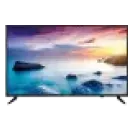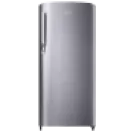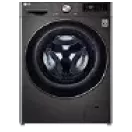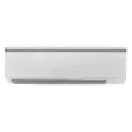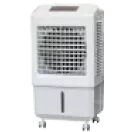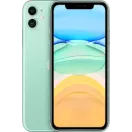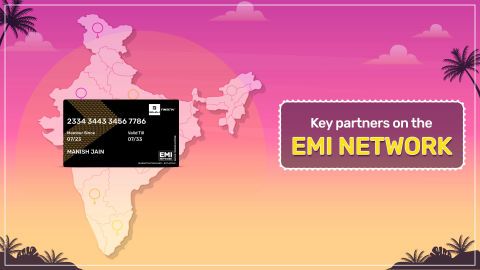Converters and inverters both play vital roles in managing electricity, but they operate differently. A converter primarily changes the type of electrical current, either from AC (alternating current) to DC (direct current) or vice versa. This makes it useful for devices requiring a specific voltage type. In contrast, an inverter converts DC power into AC power, which is necessary for running household appliances that operate on AC. This is especially important when using solar energy systems, where a
solar inverter converts the DC power generated by solar panels into usable AC power for homes. While converters focus on adjusting voltage types, inverters ensure seamless electricity flow for a wide range of electrical appliances. Understanding these differences can help you choose the right device based on your specific power needs.
Converter vs inverter: Main differencesHere are the key differences between converters and inverters:
- Function: Converters change electrical current from AC to DC or DC to AC, while inverters transform DC power (like from batteries or solar panels) into AC power for household appliances.
- Application: Converters are ideal for devices requiring specific voltage types, whereas inverters are widely used in renewable energy systems and backup power solutions.
- Power efficiency: Inverters generally offer higher efficiency in powering homes and appliances, especially when paired with solar panels.
- Types: Inverters come in various forms, including the hybrid inverter, which combines the functions of a standard inverter with the ability to manage multiple power sources (solar, battery, grid) for maximum efficiency and flexibility.
These differences will guide you in selecting the best option for your power needs.
Converter vs inverter: ComparisonTo choose the right device for your power needs, understanding the fundamental differences between converters and inverters is crucial. Here is a comparison between these two devices:
| Feature | Converter | Inverter |
| Function | Converts AC to DC or DC to AC | Converts DC to AC, typically for household appliances |
| Usage | Ideal for devices requiring specific voltage adjustments | Used to power home appliances, especially with solar power |
| Types | AC-DC converter, DC-DC converter | Standard inverter, Hybrid solar inverter for multiple power sources |
| Efficiency | Moderate, depends on device type and function | High, particularly in renewable energy systems |
| Power source | Converts power for devices with specific requirements | Converts power from DC sources like solar panels or batteries |
| Application | Small electronics, voltage-specific devices | Homes, renewable energy setups, backup power systems |
A
hybrid solar inverter is an advanced type of inverter that not only converts DC power to AC but also manages multiple power sources like solar panels, batteries, and grid electricity, providing flexibility and efficiency. Understanding these distinctions will help you choose the right device based on your energy needs and setup.
Updated price list of converters and inverters in India (2026)Prices for converters and inverters in India have seen updates in 2026. For the latest and most accurate price list, check current listings.
| Model (converter) | Price |
| Electronic Spices 12v Dc to 220v Ac 100-watt converter | Rs. 379 |
| Electronic Spices 12v to 24v Dc to 220v Ac 50-watt load converter | Rs. 499 |
| ERH India mini inverter Dc to Ac converter | Rs. 499 |
| Kit4Curious 12v solar/DC to AC converter | Rs. 615 |
| Model (inverter) | Price |
| Luminous 800/12V pure sine wave inverter | Rs. 4,649 |
| V-Guard prime 750 pure sine wave inverter | Rs. 4,799 |
| V-Guard prime 1150 1000VA/12V pure sine wave inverter | Rs. 6,199 |
| Luminous ZELIO+ 1100/12V-V2 sine wave | Rs. 7,099 |
Disclaimer: The features, availability, and pricing of each model are subject to change and may vary. For the most accurate and up-to-date information, please visit the official website.
Head to your nearest Bajaj Finserv’s partner store to explore and choose from an extensive range of converters and inverters. You can utilise a limit of up to Rs. 3 lakh to purchase your preferred model and repay the amount over flexible tenures ranging from 3 months to 60 months.
Understanding converters vs inverters: uses and featuresConverters and inverters serve different purposes in managing electricity for various devices. Converters are mainly used to change the type of electrical current from AC to DC or vice versa, making them essential for devices with specific voltage requirements, such as laptops or mobile chargers. Inverters, on the other hand, convert DC power (from batteries or solar panels) into AC power, which is necessary to run household appliances. In particular, the
best solar inverter is crucial in solar energy systems, efficiently converting DC power from solar panels into AC power for homes. Inverters also play a vital role in backup power systems and hybrid energy solutions, offering reliable power even during outages. Understanding their uses and features can help you select the right option for your energy needs.
Explore converters and inverters on EMI with Bajaj FinservBajaj Mall offers a comprehensive platform to review the details, features, and specifications of converters and inverters. Once you have gone through the available options, visit the nearest Bajaj Finserv partner store to pick the ideal model that fits your needs. With the Bajaj Finserv’s financing options, you can choose a flexible repayment tenure and manage your payments through affordable EMIs, making your purchase hassle-free.
Benefits of shopping with Bajaj Finserv’s financing options- Competitive pricing: Enjoy great value with competitive prices on a wide range of converters and inverters.
- Easy EMIs: Bajaj Finserv’s financing options make paying for your chosen device easier with Easy EMIs.
- Zero down payment: Benefit from the zero down payment policy on select products, easing the burden of initial costs.
- Options and accessibility: Find an extensive range of converters and inverters at our partner stores across multiple cities.
- Free home delivery: Some products come with free delivery, enhancing your shopping experience.
